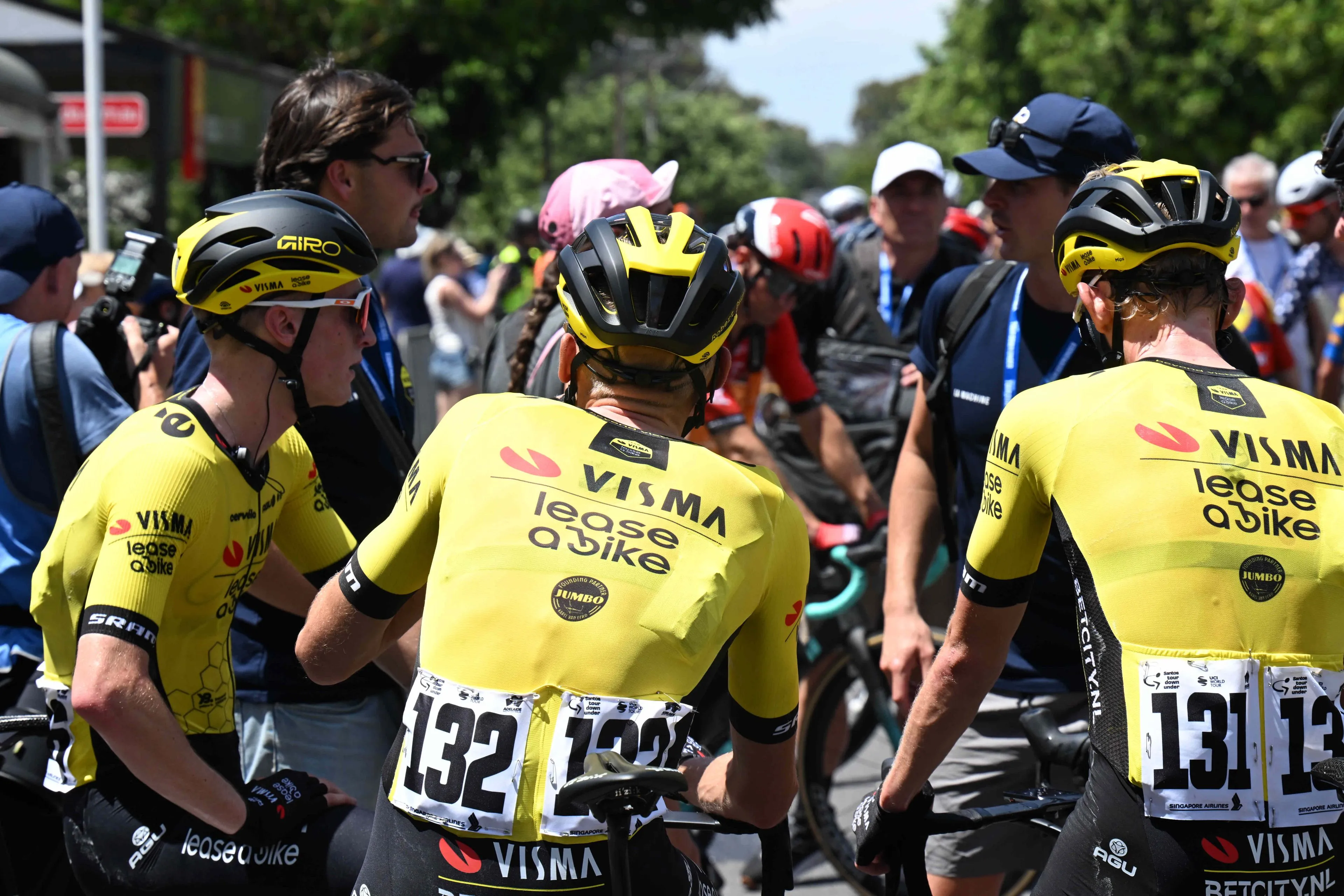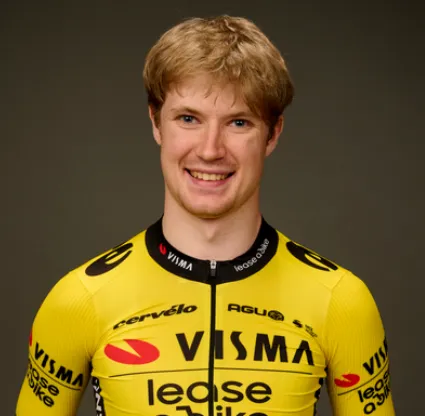Farewell to lead-out Selig: "In the past, you could still have a beer and enjoy life"
CyclingMonday, 23 December 2024 at 16:01
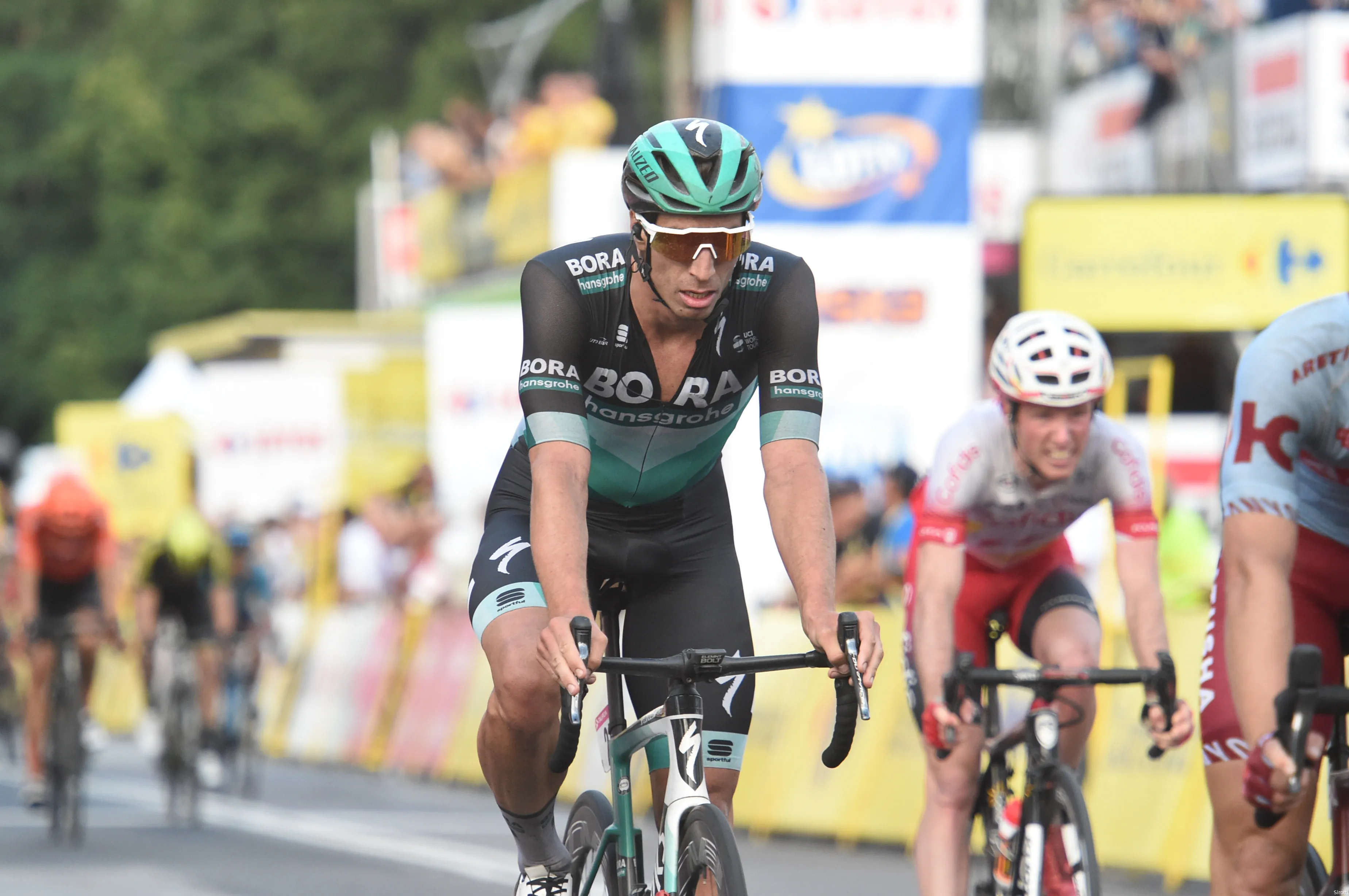
It is almost Christmas, which means that 2024 is just about over. With that also comes an end to the cycling career of Rüdiger Selig. After thirteen years in professional cycling, during which he proved his value in the shadow of his sprinters, it is time for the 35-year-old rider to retire. IDLPRoCycling.com looks back one last time on the cycling years of this big, strong German.
Selig was born on February 19, 1989, in Zwenkau, a German town near Leipzig. It was at Lake Zwenkau that his love for cycling started. In 2008, he joined the amateur team Jenatec, and three years later, he jumped to professional cycling as a trainee with Leopard-Trek. Although he initially had to prove himself, it soon became apparent that Selig could be a key link in the sprint train. His greatest strength? His unconditional dedication to the team made him a reliable lead-out man for some of the best sprinters.
Text continues below video
For Selig's qualities, you have to look beyond his results
2012, Selig signed a contract with Katusha, officially becoming a professional cyclist. He later competed for Bora-Hansgrohe and Lotto Soudal. With these teams, Selig grew from an ambitious newcomer to an experienced and respected force. He was a constant in the sprint train, putting Pascal Ackermann (187 race days) and Alexander Kristoff (109 race days), among others, in position. He also served as a lead-out for sprinters such as Sam Bennett, Caleb Ewan, and Peter Sagan.
The German was not a frequent winner. Three times, he was able to put his hands in the air. One of those victories was on a cycling track, although it was not the track that immediately springs to mind, but one in Slovakia. Selig was fastest in the second stage of the Tour of Slovakia in 2018. Safety was not as high on the agenda then as it is now. As such, the riders had to turn onto the cycling track two hundred meters before the finish, with another sharp bend a hundred meters from the line. Selig took the turn first, but no one could get past him. He was more intelligent and faster than the Quick-Step trio of Zdeněk Štybar, Yves Lampaert, and Julian Alaphilippe. By no means insignificant names to beat.
Text continues below video
We have to go back to 2011 and 2013 for his other two wins, when Selig may have still seemed like a potential sprinter in the classics. In 2011, he won Binche-Chimay-Binche, then still called Mémorial Frank Vandenbroucke. In the group sprint, he beat Baden Cooke and Adrien Petit. He also managed to triumph once on Dutch soil. The 2013 Volta Limburg Classic was won by the German. In Eijsden, a group of about twenty riders sprinted for victory. Selig won that sprint from Sonny Colbrelli and Paul Martens.
Those qualities for winning after a tough one-day race he later failed to carry through. But it is an example of scoreboard journalism to judge Selig only on his victories and podium results. His real value as a rider went far beyond what can be captured in statistics. Selig was the silent force behind the success of his sprinters, always willing to put himself entirely at the team's service. As a lead-out, he was excellent at maneuvering through the peloton and dropping off his sprinter in front.
Text continues below photo
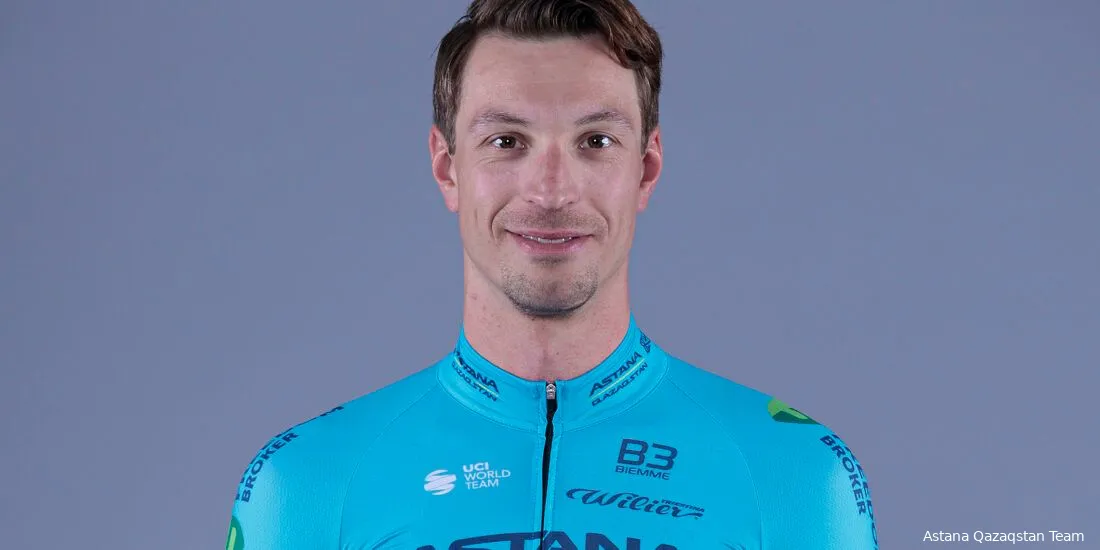
Selig desperately wanted to continue, but it was not meant to be
With Caleb Ewan's departure from Lotto Dstny in 2023, the collaboration with Selig also ended. In 2024, he still found a place with the Astana Qazaqstan Team, where he was to make history with Mark Cavendish. However, he did not ride in the Tour and focused mainly on assisting German sprinter Max Kanter. At age 35, his career, which lasted thirteen years, is indeed ending. The show is over, and the curtain is closing.
"It is with a lot of emotions that I announce today the end of my professional cycling career," Selig wrote on Instagram. "Since I was 8 years old, I only rode my bike. The reality is that I would have loved to continue. Still, as everyone in the cycling bubble knows, the next season is decisive for many cyclists…. 13 years of career as a sprinter/lead-out guy are suddenly stopping like this, but I am looking back at the years with a smile—many memories, opportunities, travels, beautiful days but also many hard ones. Let's be honest there. Cycling wasn't only my job; it was also my lifestyle as far as I can remember. It has taught me life lessons that I would have never learned anywhere else. For this, I would like to say thank you to every person who has believed in me," the German concluded.
Text continues below video
<i>Selig gets worthy farewell from his colleagues </i>
Selig has seen cycling change before his eyes
In conversation with Wielerflits, he added some further clarification. "As a cyclist, you think it could be your last season every year. That always plays in your head, especially as a sprinter. But modern cycling has changed a lot. The focus is now more on young riders; I'm not young anymore. In the past, cycling was still enjoyable and fun. Now it's predominantly high-level professional."
That certainly affected how he experienced the sport. Selig belongs to the generation of riders who experienced significant changes in the sport. "In the past, you could still have a beer and enjoy life, but now everything is just about cycling. That's 24/7. As an older rider, you've experienced both phases and for me, it was hard to make everything revolve around cycling."
What Selig will do next remains to be seen. At least he is happy in love because he got married right after his last race. Belgian Julie is the lucky one. Perhaps he will also find his way in a sport with two wheels: motorcycling. Selig would like to trade places for a day with Valentino Rossi.
Read also
IDL-productions
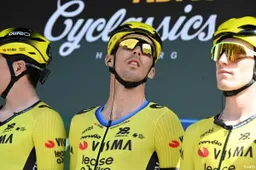
Course and results Tour of Holland 2025 | Laporte takes the lead on "his" VAM mountain, final stage in Nijmegen — with gravel!
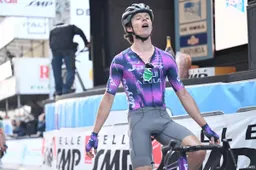
Course and results Tour of Guangxi 2025 | 4 out of 4 for Magnier, then the double strike for Double
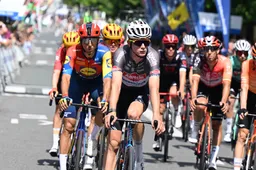
Tibor Del Grosso says Van der Poel comparisons and pressure for his cyclo-cross and road future make perfect sense
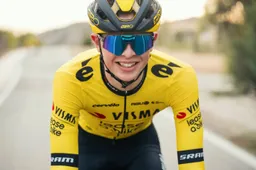
Son of Olympian extends stay with Visma | Lease a Bike: "I’d only done five road races in total"
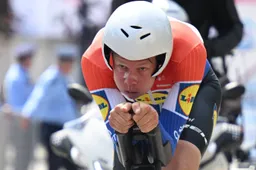
Favorites time trial stage 2 Tour of Holland 2025 | Power riders take center stage across the Dutch countryside!
Latest Cycling News

Course and results Tour of Holland 2025 | Laporte takes the lead on "his" VAM mountain, final stage in Nijmegen — with gravel!
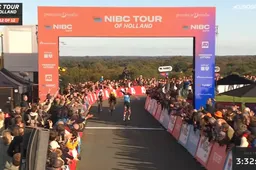
Sensational VAM mountain stage with a thrilling finale: new leader Laporte and Kubis beaten by early attacker De Jong
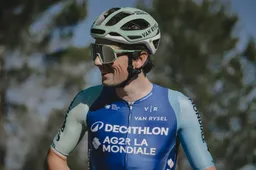
Lafay might be climbing better than ever, but retirement still lingers in his mind: "It’s fifty-fifty"
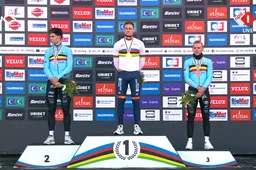
According to Wellens, van der Poel and van Aert are saying "f*ck you" to the UCI: "The World Cup is supposed to be about consistency, right?"

Van Aert relaxes with wife Sarah in Rome, while Philipsen puts girlfriend to work in Taiwan
Popular Cycling News
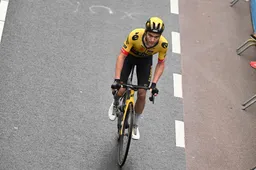
Visma | Lease a Bike crosses off another name for 2026: Van Aert and Kooij’s right-hand man hangs up his bike
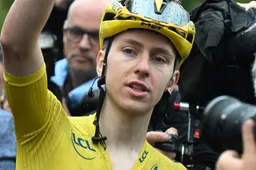
“Now I understand if he wants to quit” - Pogacar’s mother opens up about his exhaustion and retirement comments

Course and results Tour of Holland 2025 | Laporte takes the lead on "his" VAM mountain, final stage in Nijmegen — with gravel!

Course and results Tour of Guangxi 2025 | 4 out of 4 for Magnier, then the double strike for Double

Bizarre disqualification of Burgos rider in China over emoji use on strava takes an even stranger turn
Latest Comments
- Now the Palestinian protestors can stop their whining. Trump came to the rescue. So they can now STFU and go back to waving the rainbow flags.raufus15-10-2025
- Cracked the code lol. If it was that easy to 'crack the code' jonny Vegas would be charging up the Kwaremont giving Pog a dose of his medicine. Evenepoel can't match pog on a climb and neither can mvdp. Anything with a half difficult climb and Pog smashes the field. Even on flat(ish)parcours like Roubaix it came down to a mistake and crash by pog to definitively crown mvdp. MSR is the only one that Pog probably won't win.kevpt10-10-2025
- We've seen this movie before. I think Pogacar is doping.DeadBlow10-10-2025
- 👍Bea08-10-2025
- 👌🏻Bea08-10-2025
- What the data doesn't show is how much of an effect drafting had for evenepoel. Pogacar went with del toro at 100km whilst Evenepoel was still in the bunch. Despite the bike changes he still had a lot of assistance getting back to the bunch. Pogacar then rode 60km solo whilst evenepoel rode with Healy/Skjelmose until going solo in thd last 10-15km. Thats ~20% less power / energy requirements for 45-50km. Apples and oranges...kevpt30-09-2025
- 👏👏Bea24-09-2025
- Agreed! As we all know now, Juan Ayuso will be on another team. But it was sweet to see him win the stages at La Vuelta. I do love the drama of cycling admittedly but its clear to see the talent of winners of stages in a Grand Tourryhw2814fq921-09-2025
- Pogacar has no competition he has won everything, I cant imagine even being him in that position!! Crazy. I am sure he has some back up plan for how he wants to spend his retirement years at age 30 onward. Does he like beer? Plenty of innovation in brewing. And you don't have to be super social. Chapeau/Cheers whatever you like Tadej you will do.ryhw2814fq921-09-2025
- Plus its confirmed that the Philadelphia Cycling Classic up the Manayunk Wall is back for 2026! hooray for thatryhw2814fq918-09-2025
Loading
